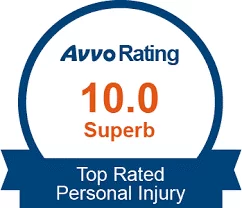While many associate Georgia with sweltering summers, the Peach State has embraced a year-round pool culture. Unlike their northern counterparts, Georgians can enjoy refreshing dips into cool water even during chilly months. This continuous enjoyment, however, raises important legal questions, especially when swimming pool accidents occur. Who is responsible?
In Georgia, the principle of premises liability is key in understanding pool safety responsibilities. Property owners, whether their pools are public or private, are required to maintain a safe environment for all lawful visitors. This includes secure fencing, well-maintained equipment, clear signage, and adequate supervision. The stakes are higher when children are involved, due to the “attractive nuisance” doctrine that demands extra precautions to protect young ones from the potential dangers of pools.
In this blog, an Atlanta premises liability attorney shares what you need to know about liability in swimming pool accidents and how property negligence contributes to swimming pool accidents in Georgia.
Have you or a loved one been injured? Greathouse Trial Law in Atlanta is ready to assist. Reach out to us at (678) 310-2827 to schedule your free consultation. Let a member of our compassionate legal team guide you towards justice and recovery.
Understanding Liability in Swimming Pool Accidents
Injuries from swimming pool accidents bring into play the principles of premises liability, regardless of whether the pool is in a public or private setting. The legal obligation of a property owner to ensure safety varies depending on the status of the injured individual – whether they were trespassers, invitees, or licensees. Central to this legal area is the concept of “duty of care” that a property owner owes to visitors.
Generally, trespassers, except in cases involving children under the attractive nuisance doctrine, may find it challenging to claim liability against a homeowner. Pool owners, however, are tasked with the upkeep and repair of their pools to prevent harm to those using the pool. Additionally, for invitees – who could be users of a public pool either free or fee-based – there’s an added responsibility to ensure the pool’s maintenance and safety.
For property owners, it’s crucial to inform licensees (individuals who enter the property for their own purposes) of any non-obvious dangers or specific hazards unique to their pool. For instance, if a pool is unsuitable for diving due to its depth, this should be clearly communicated by the owner.
Defining Duty of Care in Georgia Law
“Duty of care” refers to the legal obligation imposed on property owners to ensure a reasonable level of safety for visitors on their property. This duty varies based on the type of visitor and encompasses actions like regular maintenance, providing adequate warnings about potential hazards, and adhering to safety regulations.
Duty of Care for Different Categories of Visitors
Under Georgia law, the extent of this duty changes based on the visitor’s classification:
- Invitees: Individuals who are permitted to use a public pool, either free or for a fee, are known as invitees. Pool owners owe the highest duty of care to invitees, which involves proactively ensuring safety, maintenance, and compliance with state regulations.
- Licensees: These are guests who enter the property for their purposes with the owner’s consent, such as friends attending a pool party. Property owners must inform licensees of known, non-obvious dangers. For example, if a pool is unsafe for diving, this risk must be communicated.
- Trespassers: Generally, property owners owe the least duty of care to trespassers. However, under the attractive nuisance doctrine, especially when it involves children, this duty increases significantly.
Liability in Public Pools
Beyond the general duty of care, Georgia law enacts specific regulations for public pool, spas and water park safety, providing detailed guidelines for responsible ownership. These regulations cover crucial aspects such as:
- Fencing requirements: Ensuring physical barriers to prevent unintended access, particularly for children.
- Equipment standards: Mandating proper functionality and maintenance of ladders, pumps, safety devices, and diving boards.
- Signage clarity: Requiring clear and conspicuous signage for pool rules, depth markers, and safety warnings.
- Supervision guidelines: Establishing minimum supervision requirements for public pools and gatherings around private pools.
Failure to comply with these regulations can constitute negligence and potentially lead to liability in the event of an accident.
Responsibilities of Private Pool Owners
Owners of private pools are obligated to make their pools safe, which includes installing fences and ensuring proper pool maintenance. Most private pool owners will have insurance policies that might cover accidents. However, if you’ve been injured in a swimming pool accident, it’s important to be wary of insurance settlements that may undervalue your claim. Consulting with a lawyer is advisable to ensure any settlement offer is just and fair.
The Attractive Nuisance Doctrine and Pools
When children are involved, Georgia law applies the doctrine of attractive nuisance. This doctrine imposes a heightened duty of care on property owners to protect children from foreseeable dangers even if they trespass. In the context of swimming pools, an unfenced pool or inadequately secured pool area can be considered an attractive nuisance, potentially rendering the owner liable for injuries sustained by children who gain access.
Types of Negligence
Various negligent acts or omissions can contribute to pool accidents and potential liability. These include:
- Faulty equipment: Malfunctioning ladders, pumps, or diving boards posing safety hazards.
- Improper maintenance: Slippery surfaces, murky water obscuring hazards, or chemical imbalances causing irritation or health problems.
- Inadequate supervision: Lack of sufficient adult supervision for children or large groups of swimmers exceeding the pool’s capacity.
- Unclear signage: Confusing or poorly maintained signage leading to user confusion and potential risk.
Comparative Negligence
Comparative negligence is a legal principle used to assess fault in an accident. It allows for the possibility that more than one party may share responsibility for an incident. In personal injury claims, this means that the fault is not simply assigned to one party but is instead divided among all involved based on their degree of fault.
Georgia’s Modified Approach
Georgia follows a “modified” comparative negligence rule. This means that an injured party can only recover damages if they are found to be less than 50% responsible for the accident. If they are 50% or more at fault, they are barred from receiving any compensation.
Effect on Damage Recovery
In cases where the injured party is found to have some degree of fault but less than 50%, their compensation is reduced by their percentage of fault. For example, if an individual is awarded $100,000 in damages but is 20% at fault for the accident, their compensation would be reduced by 20%, resulting in a payout of $80,000.
Importance in Legal Strategy
This law affects how personal injury cases are argued in Georgia. Lawyers may focus not only on proving negligence but also on demonstrating the extent of each party’s fault. It becomes crucial to accurately establish the degree of responsibility each party holds in causing the accident.
Implications for Pool Accidents
In the context of pool accidents, this means that the behavior of the injured party, such as disregarding safety signs or engaging in reckless behavior, can impact their ability to claim full damages. It underscores the importance of adhering to safety regulations for both pool owners and users.
In summary, understanding property negligence in Georgia’s vibrant pool culture is crucial for ensuring safety and legal compliance. Pool owners must adhere to rigorous maintenance and safety standards, while individuals affected by pool accidents should be aware of their rights under Georgia’s modified comparative negligence law.
Need Legal Assistance for a Swimming Pool Accident in Georgia?
Injuries from swimming pool accidents can be both physically and emotionally taxing, and navigating the legal complexities can add to the challenge. At Greathouse Trial Law in Atlanta, we understand the intricacies of Georgia’s premises liability laws and are committed to helping you secure justice and compensation if you’re dealing with a swimming pool accident injury due to a property owner’s negligence.
If you or a loved one has been impacted by a swimming pool accident, don’t navigate this challenging time alone. Our experienced Atlanta personal injury attorneys are here to offer you the support and guidance you need. We are experienced in the nuances of property negligence and can help clarify your legal position, especially in the complex landscape of Georgia’s modified comparative negligence law.
Protect your rights and contact us today at (678) 310-2827 for a free consultation. Let our compassionate legal team be your guide towards recovery and justice.
For added convenience, you can also reach out to us by completing our online form. Our seasoned legal team is ready to advocate for your rights and guide you through every step of your claim.
Copyright © 2024. Greathouse Trial Law, LLC. All rights reserved.
The information in this blog post (“post”) is provided for general informational purposes only and may not reflect the current law in your jurisdiction. No information in this post should be construed as legal advice from the individual author or the law firm, nor is it intended to be a substitute for legal counsel on any subject matter. No reader of this post should act or refrain from acting based on any information included in or accessible through this post without seeking the appropriate legal or other professional advice on the particular facts and circumstances at issue from a lawyer licensed in the recipient’s state, country, or other appropriate licensing jurisdiction.
Greathouse Trial Law, LLC
260 Peachtree Street NW
Suite 803
Atlanta, GA 30303
(678) 310-2827
https://atltriallaw.com/


